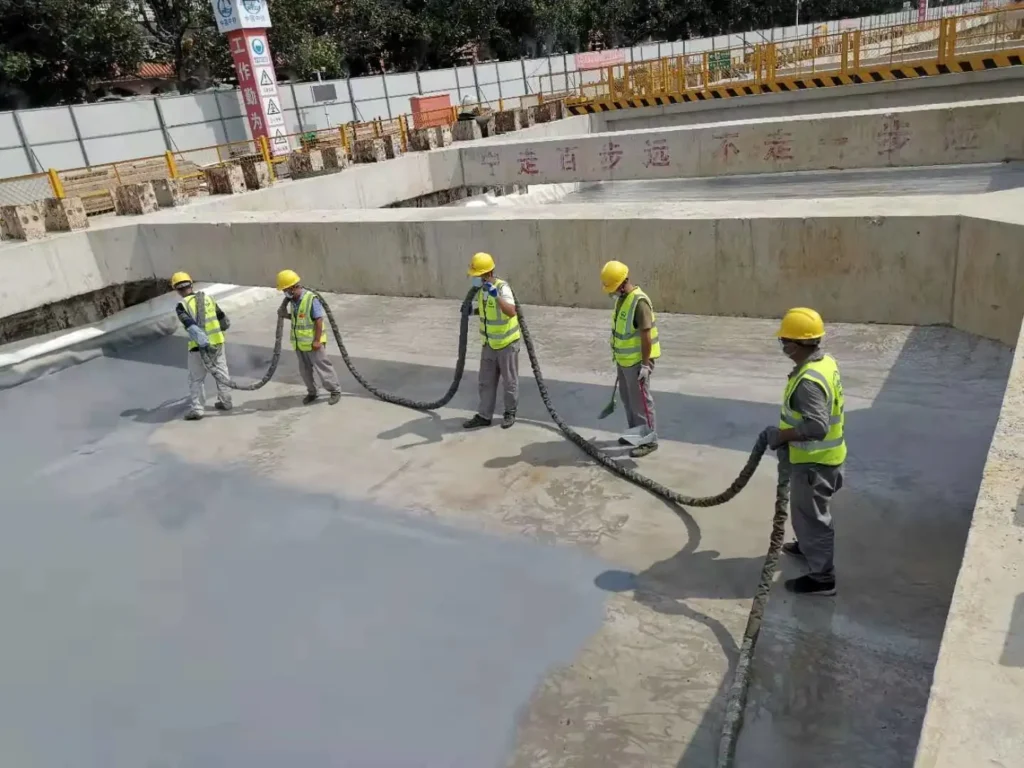Messi Biology states that in fields such as industrial anti-corrosion, building waterproofing, and electronic heat dissipation, polyurea materials are emerging as “all-rounders”. This elastomer, formed by the reaction of isocyanates with amine compounds, boasts multiple advantages including resistance to high and low temperatures, impact resistance, and corrosion resistance – it can withstand long-term seawater erosion in marine engineering, endure gravel impact on car chassis, and provide an efficient heat dissipation barrier for electronic devices. However, polyurea’s excellent performance is not inherent; its curing speed, mechanical strength, and durability largely depend on a key auxiliary material: magnesium oxide.

Magnesium oxide plays the role of a “multifunctional regulator” in polyurea systems. Firstly, it acts as a curing catalyst, precisely controlling the reaction rate of polyurea to prevent cracking due to excessively fast curing or inefficient construction due to excessively slow curing. Secondly, it enhances performance. Scientific experiments show that polyurea coatings doped with modified magnesium oxide can achieve a thermal conductivity of up to 0.8048W/(m·K), while significantly optimizing mechanical properties such as tensile strength. Furthermore, magnesium oxide can adsorb trace moisture generated during polyurea synthesis, preventing bubble formation and ensuring coating density. These effects are crucial for polyurea applications. For example, in photovoltaic module coatings, the heat conduction enhancement of magnesium oxide can improve equipment heat dissipation efficiency by 40%; and in underground pipe gallery anti-corrosion projects, its enhanced weather resistance can extend the service life of polyurea to over 20 years.
The performance of polyurea is directly linked to the quality of magnesium oxide. Hebei Messi Biology Co., Ltd., as a leading enterprise in the industry, offers products that precisely match the core needs of polyurea production:
Ultra-high purity ensures stability: Polyurea is extremely sensitive to impurities, and trace heavy metals can lead to curing failure. Messi Biology, through its “gradient calcination-multi-stage purification” technology, increases the purity of magnesium oxide to over 99.9%, with heavy metal content below 0.001%, eliminating potential performance hazards from the source. This purity far exceeds that of ordinary industrial-grade products, ensuring long-term stability and non-degradation of polyurea coatings.
Precise particle size optimizes compatibility: Polyurea construction requires auxiliary materials to be evenly mixed with the resin; otherwise, uneven coatings will result. Messi Biology employs imported German intelligent production lines and uses a DCS system to achieve precise particle size control of ±5μm, with a product particle size distribution CV value ≤3%, allowing for perfect integration with polyurea resin and avoiding precipitation or agglomeration problems.
Customized adaptation for diverse scenarios: Different polyurea applications have significantly varied demands for magnesium oxide performance – electronic heat dissipation requires high thermal conductivity, while anti-corrosion engineering requires high activity. Relying on its “Food Additive Application Innovation Center”, Messi Biology can adjust the crystal form and surface modification process of its products according to polyurea applications. For example, KH550 modified magnesium oxide customized for waterborne polyurea can directly improve the thermal conductivity and mechanical properties of the coating.
Full-chain quality control ensures reliability: From the screening of raw materials (water magnesite) to finished product warehousing, Messi Biology sets 217 quality control nodes and is equipped with precision instruments such as ICP-MS and laser particle sizers for 24-hour testing. Products are SGS certified, and key indicators are 50% better than EU standards. This stringent quality control is a core guarantee for the quality of polyurea engineering.
As polyurea extends into high-end manufacturing fields, the quality requirements for magnesium oxide are increasingly stringent. Hebei Messi Biology Co., Ltd., with its combined advantages of “99.9% purity + customized service + full-chain quality control,” not only provides stable raw materials for polyurea production but also expands the application boundaries of polyurea through technological innovation – from deep-sea anti-corrosion to chip heat dissipation, from medical coatings to new energy equipment, magnesium oxide is working hand-in-hand with polyurea to write a new chapter in material innovation. Choosing the right magnesium oxide is choosing the performance limit of polyurea products. In this wave of material upgrading, enterprises like Messi Biology are becoming the “invisible engine” of industrial development with their hard-core strength.
